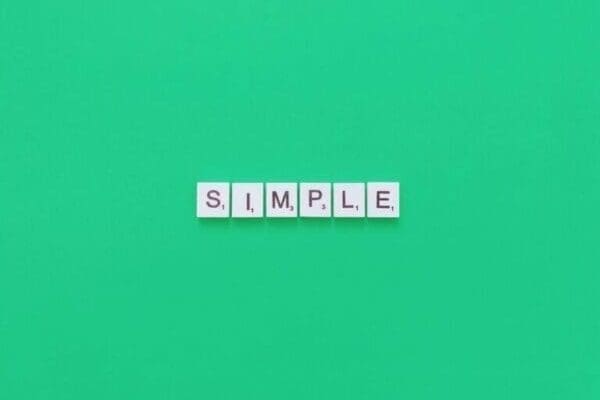Clear the Air and Reduce Potential Conflict Quickly
“I probably won’t need that exercise as I already have a Financial Adviser,” said my new client in a chemistry meeting when we were looking at what our coaching journey might look like. He had (mis) read that talking about Personal Values would be about his material assets.
It was a great opportunity to deep dive into what Personal Values are, what part they play in our lives and how when we recognise them in ourselves and in others, we can increase our understanding and lessen friction.
Your Personal Values make up your Personal Rule Book – and that is a book that not only do we rarely study ourselves, but even less often do we share with other people! When we take the time to investigate and voice values, and it doesn’t necessarily mean the ‘big’ ones, we can clear the air and reduce potential conflict quickly.

A Short Story on Personal Values
I have a value around efficiency, my husband has one around ‘clean lines.’ (I am not quite sure what the official word would be, so bear with me!). But without a short conversation, we could have had a daily battle against each other. Here goes…
I will use the same mug for my coffee all day. It’s my mug and is efficient to do so! Therefore, after finishing a drink, I will pop it next to the kettle ready for next time.
Now, because my husband works out of the kitchen (thanks Covid!), he can see the mug, and it causes him to feel some ‘discomfort’. (Discomfort can be interchanged with annoyance, upset, grievance etc depending on the number of times I do this). Because it is ‘a dirty mug on a clean surface,’ he puts it in the dishwasher.
Now, it’s not efficient for me to use a clean mug, or to have to wash up the original one, so it caused me some ‘discomfort’ (as above). Neither of us is wrong in our thinking or behaviour, but we are both using our own ‘Rule Book’ to correct the situation.
After a brief discussion which started with ‘why is my mug in the dishwasher when I am going to use it again?’, we came to a simple agreement that I put it in the cupboard where he can’t see it!

I am sure we all have similar stories that include jam spoons, shoes on stairs, ‘that thing you do when you’re watching tv,’ etc! So, what is it about Personal Values and why is it important to know what ours are? (Important note – they are not set in stone, their impact and gravitas change, so don’t have a t-shirt made!)
Our Personal Code of Conduct
Values are a core part of us as they highlight what we will or won’t stand for. As unique as our fingerprint or DNA, our values represent our unique, individual essence. They guide our behaviour and provide us with a personal code of conduct.

When we honour our personal core values consistently, and we spend time with people who behave in ways that respect them, we experience fulfilment – you know, those times where you have an inner warmth because you are seeing behaviours that align with what you would do, or that make you feel proud. When we observe behaviours that don’t align with our personal values, there is a sense of friction or discomfort.
As with most things, you will begin to form your values by modelling your parent’s behaviours. As you get older and experience life, you may change your values depending on how events and interactions make you feel. There are some life-changing occurrences or illnesses that will make a significant difference.
What you deem to be ‘good behaviours’ such as politeness, kindness and empathy will build these values. It may be that funfairs, camping trips and risk-taking drive your values around excitement and adventure. Those things that do not excite you or that you are not interested in, maybe art, speed or leadership, for example, will not be high up on your list. It doesn’t mean you don’t value or respect them in other people (and it is incredibly important to do so), but rather they are not going to be your drivers or motivators.
Personal Values as Drivers and Motivators
Life’s goals will be value-based. If you state your goal and then ask why several times, you are likely to find the value behind it. And the reason many goals, especially New Year’s Resolutions, fail is that we have not recognised the value that it aligns to. Or more often, we are not giving that value the energy and focus it needs.
I had a client who said they wanted to go to the gym more. The plan failed because the gym was too expensive, putting their value of money over fitness. Another client wanted to save money for their holiday but didn’t achieve as much as they wanted to because they had been out for several events with friends. They put their social and connection values above that of saving money. Neither is wrong, but it highlights how recognising the value that sits behind your goal can affect the outcomes.
In a work context, people who have values around growth, learning or recognition etc. but are in a job with no visible progression may lose their motivation to perform to their best. However, that may be overridden by integrity and self-esteem, so the value of values is also a factor!
Sticky Learning ® is 7 times more effective than 1-day training courses. Plus, you will get a Chain of Evidence proving your Return on Investment. Discover soft skills training that changes behaviours long term.

Our Reason for Being

Until we start investigating our values, we may not fully understand or be aware of their true purpose, and neither will others. Values are largely unconscious and because we can’t observe them as clearly as we can skills and knowledge, it is useful to take time to look at what your own values really are, and the values of those around us. In so doing we can see what makes them tick (or tick them off).
Imagine someone rolling their eyes as you walk into a room with a fresh cup of coffee ready to start the meeting. You wonder what you did wrong and that they’re being rude. It may be that they hold punctuality in high regard and that they feel their value has been disregarded or disrespected (although they may not recognise this in themselves).
You might have been helping someone at the coffee machine who needed some advice and your value of ‘service’ had been met, or getting coffee is about self-care – who knows! What if you had a conversation about it so next time you can catch their eye with an acknowledgement that says ‘sorry, I know.’ Our reasons for being who we are and behaving in certain ways will have our inner values right behind them.
Did You Know?
Here’s an example of how our values can be hidden. When you think of someone like Mohammed Ali, you might think of his passion for the boxing ring, his red shorts and gloves and a man who lived for his love of fighting others.
In fact, he had very strong values regarding his religion, peace and pacifism. This meant that he refused to be inducted into the US Army and serve his country in the Vietnam War. Later on, he was banned from boxing and he was sent to prison as a conscientious objector. Who saw that coming?
They Govern Our Behaviour

Your values are not set in stone, they are flexible and we will choose their potency depending on the situation and the consequences. We may all say we have a value around honesty, but I am fairly sure we have all told a little white lie when the need arose. That we have all gone very slightly over the speed limit when no one else was watching. That we took the pen from the hotel room when we already have enough to open our own small stationery store!
These are generally small indiscretions that we believe will not harm anyone or result in a bad outcome. But what about the bigger events? Staying with honesty – how many of us would steal something that would result in an arrest, or take someone else’s possessions? How many of us would tell a lie that meant someone else got the blame? And for me, especially as a coach, how many of you would tell someone else’s story when you had promised confidentiality? Definitely not!
Personal Values Help Us Evaluate ‘Feelings of Discomfort and Conflict’

Sometimes it is really useful to look at your values when things just don’t feel right, there is a reaction, or you want to investigate an emotion. I love doing this as it grounds my thinking and gives me some background data into why I might be unexpectedly upset or disappointed about an event.
I had it recently when a friend died. Though I say friend, he was my mechanic, so not someone I had spent any time with or had a personal connection to other than the 10 minutes of dropping off and picking up one of the cars 3 or 4 times a year. But I was really upset by his death.
I thought through the conversations we had had during those short interactions and recognised some of his notable values around respect, honesty, integrity and humour – all things that I hold in high esteem. He was one of the good guys and I was sad that we had one less of those on the planet.
Another example was when a company I was working for changed ownership and the rhetoric changed from being a family-run, caring, customer-focused company to being one that was about maximising profit with little regard for the former ethos. It felt ethically wrong to me, and I knew quite quickly that it was not a place I wanted to be associated with. So I left, even though it paid well, it fitted in with my young family and I enjoyed the work I was doing. My core values were not being met at that time and the incongruency was not bearable.
So, What Do We Do Now?
I love looking at Personal Values with individuals in coaching sessions and aligning them with all the points above. It is also an incredibly powerful exercise to do in teams to learn more about each person, what’s important to them and why it’s important plus it opens conversations about drivers and motivators. I have found that it can be the first step to creating a psychologically safe environment.
When working in teams, please ensure people know they only need to share if they are happy to do so and ask everyone to have respect for other people’s values. Each person is their own subject matter expert, so there are no rights or wrongs here.
Here is a Simple Exercise

1. Make a List
Use your browser to search for “Core Values.” Then find a list of around 100 value words. Somewhere like The Science of People is a good place to start.
2. Your Top 10 Personal Values
From those 100 values, choose the 10 that resonate most with you and write them in a list. Go with your gut, not what you think you should have. (I didn’t have family in my top 10 – not because I don’t value them. To me I didn’t have to give them a place, they’re omnipresent). You might also want to note the ones that are a definite ‘no’ for you for reflection later.
3. Get Everyone Involved
If you are working with a team and people are happy to share, ask everyone to write them in one place. This can be a large piece of paper or an Excel spreadsheet on a shared drive works well if you’re able to.
4. The Hard Choice
When you have your top 10 written down, think about which one is non-negotiable. AKA- the one you could not live without. Place this as number 1.
5. Share Your Personal Values
Either as an individual or in a team (again, if people are happy to), explain why you chose that value as your number 1, your definition of the value and what is important to you about it. As a bonus – tell your team what they could do so it shows up more for you.
6. Can You Live Without?
Think about which one you could live without for an hour, a day, or a week. (We’re not asking forever as we already know it’s important enough to you to be in the top 10). Put that as number 10 on the list.
7. Feel their Weight
Choose 2 of the other values (if already in a list, say number 3 and 5). Now hold out your hands, palms up, and imagine a value sitting in each hand. Close your eyes and ‘feel’ which one is most important to you. It might be heavier or lighter, but whichever feels more important, move it up the list. You can repeat this with other numbers if you wish. It gives a good indication of how your head/heart/gut may work it out for you!
8. Look to Achieve a Goal
As an individual, look at where you might want to put your energy and focus to achieve a goal. (See the drivers and motivators section above). If you’re in a team, look for correlations, differences, trends etc.
You’ll Find This Interesting
I ran this exercise with 600 people in one session and no 2 people had the same list in the same order! During the team exercise, I heard many definitions of what ‘Family’ means, what ‘wealth’ means (not just monetary) and what trust means. I use Brene Brown’s BRAVING Trust work to break the last one down as the elements always appear in the team lists.
Music
In my top 10, there is a value of ‘Music.’ I often get asked ‘How can that be a value?’ Well, it goes with step 4 of the exercise. I have very strong personal values around honesty, integrity, respect and fairness. But please don’t ever take away my music.




